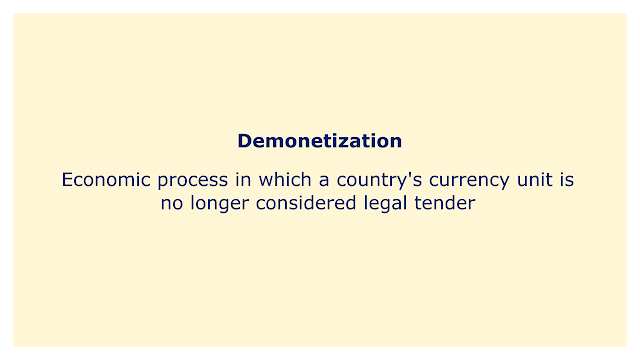 |
| Image: Moneybestpal.com |
The process of demonetization removes the legal tender status of a nation's currency. Physical money, such as coins and banknotes, is what we would typically refer to as a currency unit. Demonetization renders the money of the nation effectively useless because it is no longer used to make purchases of goods and services.
Demonetization may be implemented for several reasons, such as:
- To reduce the money supply in order to prevent inflation
- To reduce corruption and black money by making it more difficult to obfuscate unlawful income
- To impede the cash flow of criminal enterprises like terrorism and drug trafficking in order to stop sponsoring them
- To encourage the adoption of electronic payment methods in order to advance digital payments and financial inclusion.
- To update the monetary system by switching out old, tattered notes for new, secure ones.
- A brief halt in economic activity brought by a lack of cash and decreased consumer expenditure
- A reduction in income for workers in the unorganized sector who rely on cash transactions
- A decrease in tax revenue for the government as a result of less economic activity
- A decline in inflation brought on by a drop in the money supply and demand
- An increase in tax compliance as a result of more responsibility and transparency
- A rise in financial inclusion as a result of easier access to banking services
- India in 2016, when it withdrew 500 and 1000 rupee notes from circulation
- Zimbabwe in 2015, when it replaced its hyperinflated currency with US dollars
- Nigeria in 1984, when it changed its currency notes to fight corruption
